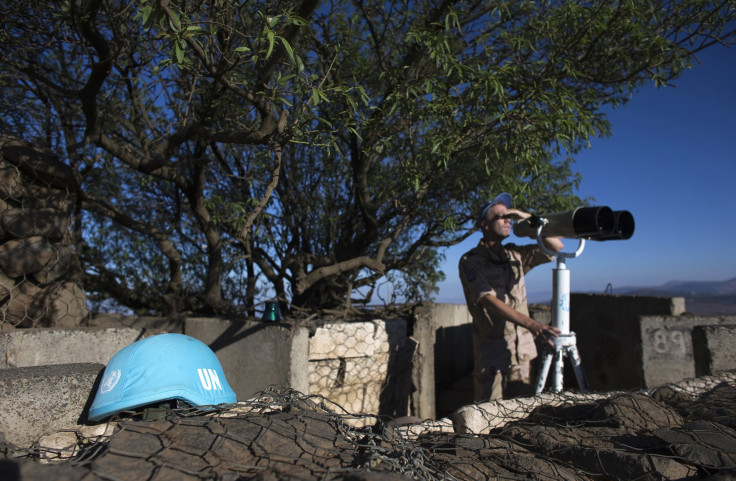32 UN Peacekeepers Rescued in Golan Heights; Others Still Trapped

After two days spent trapped in the Golan Heights by Islamist militants, 32 U.N. peacekeepers from the Philippines were rescued on Saturday, while still 40 others remained under siege on the plateau between Israel and Syria.
The location of those 40 peacekeepers, U.N. Position 68, endured attacks Saturday with mortar and heavy machine gun fire, the U.N. said. An anonymous diplomatic source told Reuters that more rebels began to amass around 11 pm local time (4 pm EDT). "As we speak more rebels in more than 20 vehicles are approaching and reinforcing the siege around Position 68," the person said.
By Saturday evening, New York time, the U.N. described the situation on the ground as “calm but tense.” There were no casualties reported among the U.N. personnel.
Meanwhile, the U.N. said that it was continuing to work toward the “immediate and unconditional release” of 44 Fijian peacekeepers who were seized Wednesday by Syrian rebels.
The U.N. Disengagement Observer Force (UNDOF) has monitored a ceasefire between Syria and Israel since 1974, following their 1973 war. It was during the 1967 Arab-Israeli war that Israel seized most of the narrow Golan Heights.
As of the end of July, the UNDOF was comprised of 1,223 peacekeepers from six countries -- Fiji, India, Ireland, Nepal, Netherlands, and the Philippines.
A commander with the al-Nusra Front, a Syrian rebel group linked to al-Qaeda, told Reuters that peacekeepers from Fiji were detained “because UNDOF was aiding the government of President Bashar al-Assad and had ignored the suffering of the Syrian people.” Al-Nusra also said the peacekeepers were in good health.
© Copyright IBTimes 2024. All rights reserved.





















